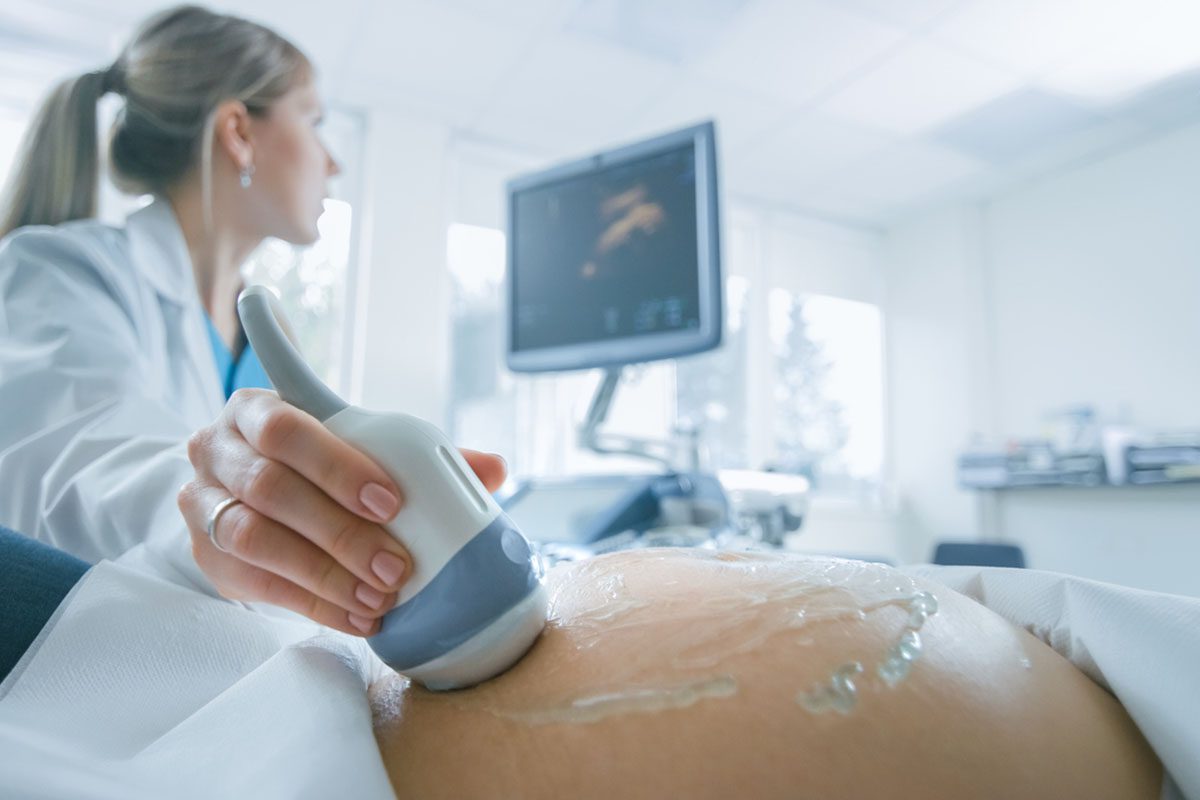See letter by Vangala et al and reply by Vangala et al
To the Editor: As licensed clinical social workers with extensive experiences in centers for fetal diagnosis and treatment (CFDTs), we read the letter to the editor by Drs Vangala et al1 with interest and perplexity. We agree with them that people undergoing evaluation for maternal-fetal surgery (MFS) should be assessed for their ability to feasibly undergo MFS. We also believe patients deserve to have ongoing psychosocial assessment, behavioral support interventions, and referrals as they progress from the initial consultation through MFS to birth or demise. We were perplexed because assessment and psychosocial support are already provided by perinatal social workers at some CFDTs, and, when available, their services are well received.2,3
“Consistent and compassionate communication with all healthcare professionals (HCPs)”4(p100320) is vital for MFS patients.5 The nurse coordinator and/or perinatal social worker provide critical continuity of care because they are the HCPs with whom patients interact most frequently and who they trust as their advocates.6 Nearly half of CFDTs have dedicated social workers (full time in the CFDT).2 These perinatal social workers provide extensive psychosocial assessment (including assessment of social determinants of health, mental health functioning, evaluation of available social supports, and referrals for community resources and psychiatric consultation if indicated) along with ongoing provision of psychosocial support and behavioral counseling.7 They maintain ongoing relationships with patients to ensure these services throughout the entire pregnancy and postpartum.8
We agree that psychiatric assessment may be indicated when “severe, active psychiatric symptoms” are evident. CFDT patients are at increased risk for anxiety, depression, and posttraumatic stress, regardless of whether they participate in MFS and therefore benefit from social work services integrated within CFDTs.6,9 Nevertheless, we are perplexed by the recommendation for psychiatric assessment primarily to determine eligibility for MFS. One-time assessment does not entail participating in an ongoing team that constantly reassesses and tailors psychosocial supports and referrals as fetal and maternal conditions and understandings evolve. Social workers competently assess who can feasibly undertake the rigors of MFS (which often entails stopping employment and/or active childcare, moving closer to the delivery hospital, and coping with distress and anxiety). When they, together with the full team, decide that a family is capable of managing MFS, they coordinate the support those families need, including ongoing mental health counseling.10,11
In summary, although we believe that more psychosocial support for these families is always welcome, we humbly disagree that one-time psychiatric assessments at the initial MFS consultation will be useful. Instead, we suggest that all CFDTs include a dedicated social worker who can provide ongoing psychosocial assessment, behavioral health support, and “warm hand-off” referrals8 throughout the pregnant person’s care. Such care contributes to patients’ sense of compassionate continuity of care and can ease patients’ anxiety during stressful care transitions.
Article Information
Published Online: November 18, 2024. https://doi.org/10.4088/JCP.24lr15579
© 2024 Physicians Postgraduate Press, Inc.
J Clin Psychiatry 2024;85(4):24lr15579
To Cite: Akerson VM, Hansen KL, Merrill Olver K, et al. Mental health assessment and psychosocial intervention are already happening for maternal-fetal interventions. J Clin Psychiatry. 2024;85(4):24lr15579.
Author Affiliations: St. Louis Fetal Care Institute, SSM Health Cardinal Glennon Children’s Hospital, St. Louis, Missouri (Akerson); Fetal Health Center, Children’s Mercy–Kansas City, Kansas City, Missouri (Hansen); Fetal Care and Surgery Center, Boston Children’s Hospital, Boston, Massachusetts (Merrill Olver); School of Social Work, Rutgers University, New Brunswick, New Jersey (McCoyd).
Corresponding Author: Judith L. M. McCoyd, PhD, LCSW, Rutgers University, School of Social Work, 390 George St, 709, New Brunswick, NJ 08901 ([email protected]).
Relevant Financial Relationships: None.
Funding/Support: None.
Acknowledgments: We acknowledge the positive influence of the National Association of Perinatal Social Workers on our careers and perspectives, as well as what we have learned from the many families we have worked with over the years.
ORCID: Judith McCoyd: https://orcid.org/0000-0001-8105-8690
References (11)

- Vangala S, Williams R Jr., Buskmiller CM, et al. Mental health assessments for fetal interventions. J Clin Psychiatry. 2024;85(3):24l15275. PubMed CrossRef
- Kett JC, Woodrum DE, Diekema DS. A survey of fetal care centers in the United States. J Neonatal Perinatal Med. 2014;7(2):131–135. PubMed CrossRef
- Wilpers A, Goldblatt Hyatt E, Bahtiyar MO, et al. “We all want to be able to tell you something hopeful”: cliniciansʼ experiences providing maternal-fetal surgery counseling. Fetal Diagn Ther. 2023;50(5):353–367. PubMed
- Wilpers A, Bahtiyar MO, Stitelman D, et al. The parental journey of fetal care: a systematic review and metasynthesis. Am J Obstet Gynecol MFM. 2021;3(3):100320. PubMed CrossRef
- Hansen K, Trowbridge K, Wayne A. Parent decision making with fetal surgery for myelomeningocele. J Pediatr Surg Nurs. 2023;12(1):22–30.
- Baschat AA, Blackwell SB, Chatterjee D, et al. Care levels for fetal therapy centers. Obstet Gynecol. 2022;139(6):1027–1042. PubMed CrossRef
- Standards for Social Workers in Obstetric Settings. National Association of Perinatal Social Workers (NAPSW). May 1984. Update April 2007. Accessed August 9, 2024. https://www.NAPSW.org/ethics_standards.php
- Eyerly-Webb SA, Ylvisaker H, Beh M, et al. Understanding the care journey and needs of advanced fetal care center patients. Perm J. 2022;26(2):11–20. PubMed
- Cole JCM, Moldenhauer JS, Berger K, et al. Identifying expectant parents at risk for psychological distress in response to a confirmed fetal abnormality. Arch Womens Ment Health. 2016;19(3):443–453. PubMed CrossRef
- Hertzog J, Morris ED, Ousley HK. Ethical considerations in fetal surgery: social workersʼ role determining maternal-fetal surgery eligibility given an addiction history. In: McCoyd JLM, Lee JE, Kerson TS, eds. Social Work in Health Settings: Practice in Context. 5th ed. Routledge; 2023:74–84.
- Hudson MG. Fetal surgery. In: Kerson TS, McCoyd JLM, eds. Social Work in Health Settings: Practice in Context. 3rd ed. Routledge; 2010:29–39.
This PDF is free for all visitors!





